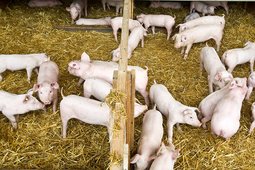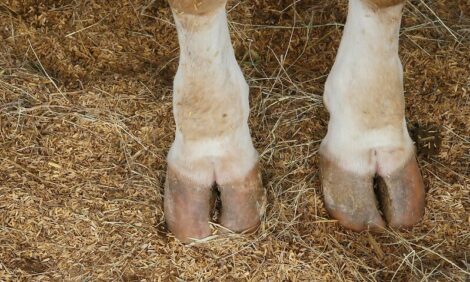



Pig farms are reservoir for novel influenza viruses
New study identifies viruses with pre-pandemic potential
A comprehensive study coordinated by the Friedrich-Loeffler-Institut (FLI) and the Freiburg University Medical Center was conducted with additional partners in a research project funded by CEVA Tiergesundheit GmbH. More than 18,000 individual samples from almost 2,500 European pig holdings affected by respiratory diseases of pigs were investigated.
Pigs are ideal mixing vessels for the replication and reassortment of influenza viruses originating from humans, pigs or birds. The causative agent of the latest human influenza pandemic Influenza A(H1N1)/2009 was introduced into European pig populations already in 2009 and, according to the results of the study, is of outstanding importance for the rapidly growing repertoire of novel virus variants in pigs.
In the frame of this study, pig holdings in Germany and 16 other European countries were investigated. In more than half of these holdings, influenza virus infections were found all year round. Four influenza virus strains with different geographical distribution are predominant in the European pig populations, and novel virus variants increasingly emerge from these four strains.
One focus of the study was the investigation of possible zoonotic properties of these viruses, i.e. their potential for transmission to humans. Detailed analysis of their similarities to human viruses and their transmission properties in ferrets, an animal model for human influenza, showed that some variants do have zoonotic potential.
Other viruses proved to be resistant to an important component of the human antiviral defense.
"Some of the swine influenza viruses have already crossed an important immune defense barrier for transmission to humans. This considerably increases the risk,“ says Prof. Dr. Martin Schwemmle of the Freiburg University Medical Center.
Up-to-date knowledge of the infection situation leading to improved control strategies, and the optimization of vaccines for pigs against influenza viruses can significantly contribute to increased animal welfare and reduced economic losses in pig production. At the same time, a decrease of influenza virus prevalence in pig holdings would reduce the risk of human exposure to potentially zoonotic influenza viruses from this reservoir.
"The much-cited `One Health concept´ could be successfully translated into practical projects for the mutual benefit of humans and animals,“ says Prof. Dr. Timm Harder of the Friedrich-Loeffler-Institut.
Study:
Surveillance of European domestic pig populations identifies an emerging reservoir of potentially zoonotic swine influenza A viruses Cell Host & Microbe (2020) DOI: 10.1016/j.chom.2020.07.006






